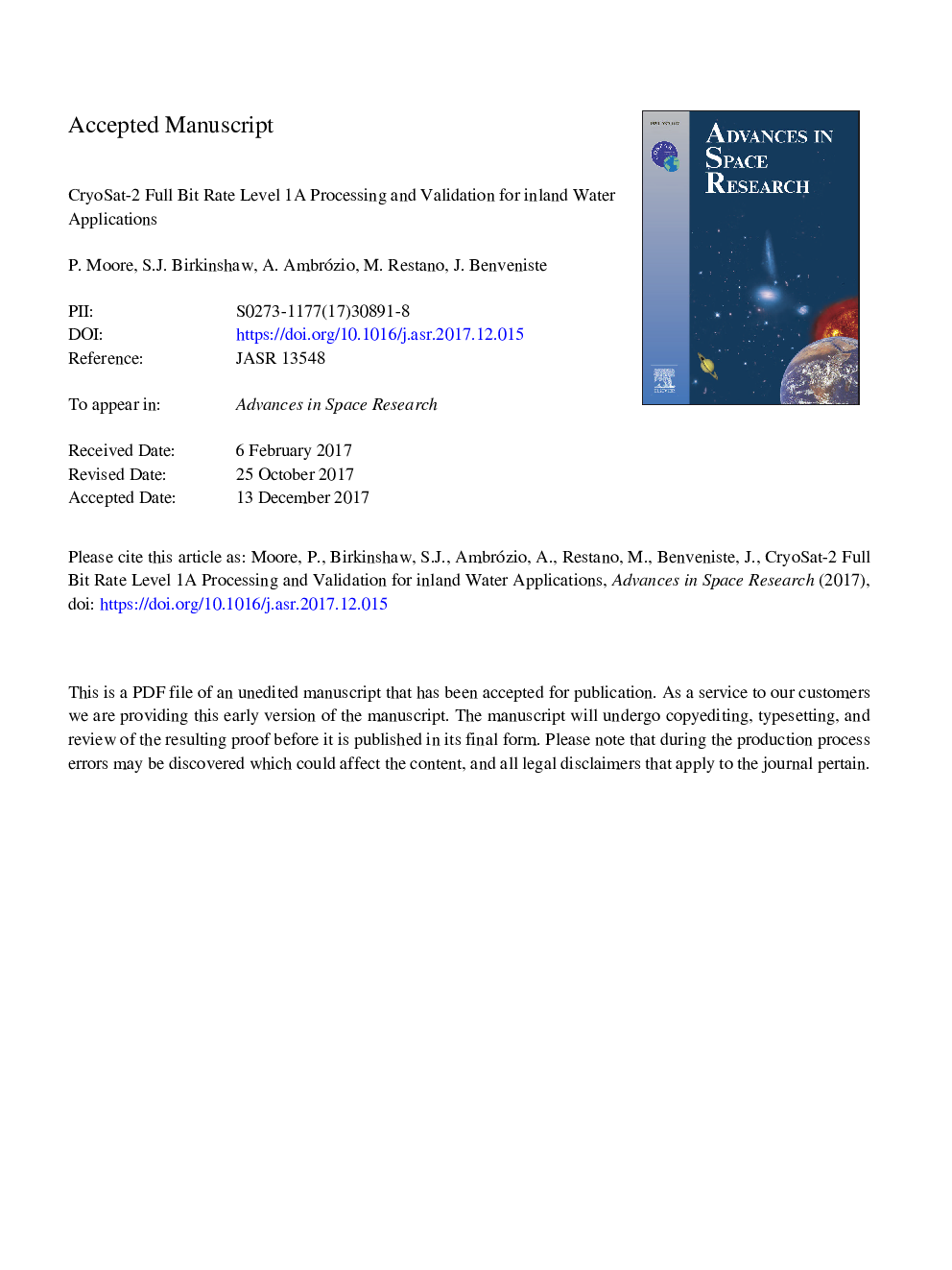| Article ID | Journal | Published Year | Pages | File Type |
|---|---|---|---|---|
| 8131609 | Advances in Space Research | 2018 | 37 Pages |
Abstract
This study uniquely processes Cryosat-2 Full Bit Rate (FBR) SAR Level 1A data to recover inland water heights. The processing methodology involves an azimuthal Fast Fourier Transform (FFT) for the burst echo data followed by beam formation directed towards equi-angular ground points, stacking, slant range correction, multi-looking and finally retracking. It is seen that speckle in the burst echo data affects the recovered heights with precise heights recovered only through stacking and forming multi-look waveforms. Also investigated is the effect of different numbers of multi-looks in the stack to form the final waveform for retracking. A number of empirical retrackers are utilized over inland waters and compared against the oceanic SAMOSA2 and the OCOG/Threshold retrackers. Use of the SAMOSA2 retracker is shown to be inappropriate for inland waters. The use of 81 multi-looks from the stack centred on the nadir direction is shown to be preferred across Tonlé Sap with the RMS of height residuals in the range 4-6â¯cm. External validation across Tonlé Sap using gauge data shows that CryoSat-2 heights (RMS 42.1â¯cm) are comparable to OSTM (RMS 42.6â¯cm) despite the CryoSat-2 non-repeating orbit which precludes the use of a mean profile. Validation against gauge data at Kratie on the Mekong gives an RMS of 59.9â¯cm for Cryosat-2 against an RMS of 35.5â¯cm and 52.2â¯cm derived from Envisat. The CryoSat-2 results utilize an approximate correction for river slope as the river crossings span 5â¯km upstream to 80â¯km downstream of the gauge while the repeat pass crossings of Envisat are at 7â¯km and 43â¯km from the gauge. Validation of Amazon altimetric Surface Water Elevation (SWE) showed RMS agreement of 27.3â¯cm with Obidos gauge data and 56.3â¯cm at Manacapuru 650â¯km upstream of Obidos. Overall validations showed that CryoSat-2 altimetric river heights are more accurate than those from TOPEX/Poseidon, OSTM and Envisat for relatively large water bodies but less accurate than the Ka band SARAL (Satellite with ARgos and ALtiKa).
Keywords
Related Topics
Physical Sciences and Engineering
Earth and Planetary Sciences
Space and Planetary Science
Authors
P. Moore, S.J. Birkinshaw, A. Ambrózio, M. Restano, J. Benveniste,
